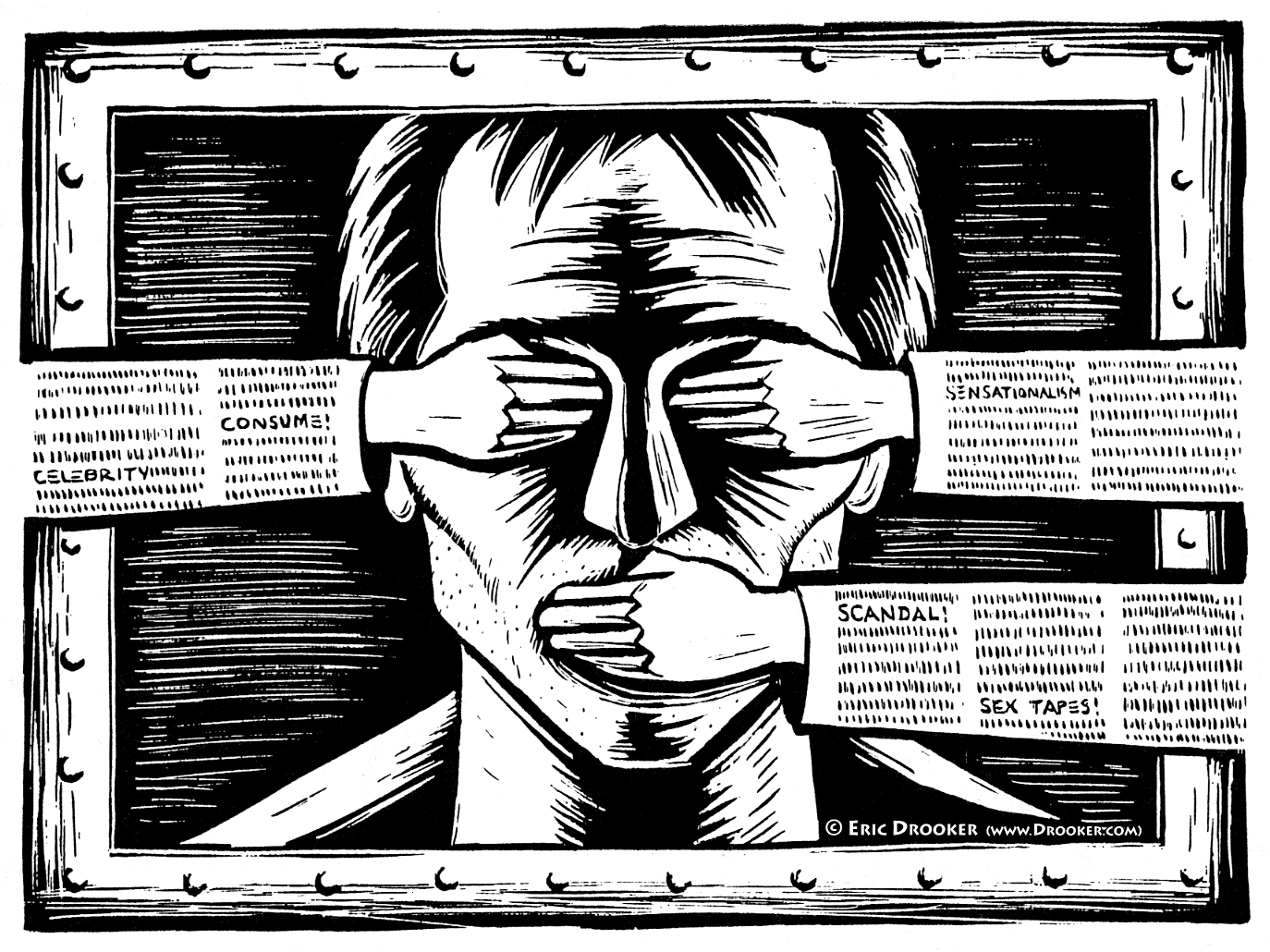This year, McGill was ranked one of the worst universities in Canada for freedom of speech according to the Justice Centre for Constitutional Freedoms (JCCF). The JCCF is a registered charity founded “for the purpose of advancing and promoting the core principles of freedom and equality.” As such, it releases an annual “Campus Freedom Index” wherein 52 publicly-funded universities – and their student unions – are assessed on how well they preserved freedom of speech on campus over the past year. In this year’s edition, both McGill and our august student society (SSMU) were ranked third worst in the country for upholding free expression in their policies and practices. While McGill University was awarded Ds throughout, SSMU’s evaluation was showered with a mix of Ds for its policies and highly-coveted Fs for its practices.
Why? In SSMU’s case, it was deemed that the organization apparently “actively discriminated against campus clubs purely on the basis of the club’s beliefs, opinions or philosophy, by:
- Refusing to certify a proposed campus club;
- Refusing to provide a club with funding on par with other campus clubs;
- Refusing to provide a club with equal access to resources such as room-booking or space-bookings;
- Imposing other restrictions on clubs based on the content of club’s expression, or based on the club’s beliefs, opinions or philosophy.”
By these standards, SSMU’s F grade for its practices seems fair. At McGill, it’s no secret that we, as a community, tend to bend over backwards to accommodate for political correctness. This high premium on political correctness may be a genuine reflection of the sentiment of many people in our community, who seek to protect all individuals against discrimination and harassment. However, by institutionalizing these efforts and making them obligatory, the implementation of our anti-discrimination policies renders them strained and rather insincere in practice.
All this begs the question: how many of our inclusivity policies – the very same ones that earned us that F – are truly reflective of the attitudes of the students that make up our university?
When you think about it, some of SSMU’s actions are entirely detached from the value-systems of the silent majority here at McGill. Who can forget the historic hoopla that was Farnangate? Of course, the fact that someone was offended by an implicit connotation they perceived in the image certainly needed to be addressed. However, did that redress need to take the shape of a public apology delivered to the inboxes of each and every single student, despite the fact that Farnan’s apology was – as he learned too late – entirely out of tune with the opinions expressed by a majority of those same students?
It’s true that, more often than not, the inconveniences of the majority are but a small price to pay when compared to the pain and discrimination experienced on a regular basis by those of the marginalized minority. However, it’s also true that, by restricting freedom of speech on campus, the overrepresentation of certain voices – to the point of silencing others – breeds resentment; and far too often, resentment breeds a trivialization the bigger issue at hand.
The fact that Farnangate was transformed into a universal punchline by its bitter end is a clear sign that the crux of the matter was regrettably swept under the rug. Throughout the entire debacle, never once was there a meaningful discussion about the fact that young black men are in fact too often labelled as violent by media and law enforcement alike – an issue that has recently become particularly relevant following the ongoing events in Ferguson, Missouri.
One of the cases that JCCF cited as contributing to our F grade was SSMU’s decision to revoke the official club status of Choose Life, a pro-life group on campus. Their decision was preceded by a talk held by the organization called “Echoes of the Holocaust,” which juxtaposed the modern realities of abortion with the past atrocities of the Holocaust. Student protesters (with the backing of SSMU) shut down the event, and the club was revoked on the grounds of “hate speech,” as well as “the use of ‘questionable statistics from questionable sources,’ and the use of graphic imagery.” This verdict was in line with the sentiment shared by many students on the offensive nature of the group’s actions, as detailed in the complaints made to the Equity Commission.
From the aggressive backlash from the student body, it is clear that many on campus viewed the actions of Choose Life as harassment, and sought protective measures from being affronted with images and messages they considered disturbing. The club’s actions fit the definition of harassment in SSMU’s Equity Policy: “any behaviour, act, comment, or display that demeans, belittles, and/or causes personal, psychological, or social harm to an individual or group, including an act or acts of intimidation or threat.” Thus, SSMU’s grating condemnation and swift reaction can rightfully be seen as entirely valid.
But this definition can also be applied to Farnangate, seeing as the one anonymous complaint delivered to the Equity Commission was enough to render Farnan guilty of harassment under SSMU’s policies. Though both cases contributed to our F grade, it is absurd to claim that the initial scope of Farnangate as a campus-wide issue was equivalent to that of Choose Life. The drastic difference in SSMU’s reaction to both cases brings into question not only the competing principles of free speech and inclusive policy, but also whether the nature and universality of the attitudes of SSMU’s constituents should be considered in deciding whether or not one principle should be favoured over another.
As mentioned, Farnangate was the result of one anonymous complaint, whereas Choose Life was faced with multiple formal grievances from many individuals and organisations alike. Though it is important to preserve the principle of free speech, there is – and must be – a threshold past which the protection of individuals from harassment and intimidation can limit freedom of expression. Thus, the request of the many students who saw the actions of this organization as harassment seems to me a reasonable one, and should thus serve to justify for the ensuing obstruction of freedom of speech.
The ugly truth is that discrimination and harassment does happen on our campus, and people need some level of protective measures for safer space. We mustn’t see freedom of expression and inclusivity as black and white; we must find the middle ground. To find the middle ground, our student leaders need to be sensitive to the general sentiment of the student body. Without understanding the the organic dialogue that already occurs among students, SSMU risks misunderstanding and misrepresenting what kind of balance students want to see between freedom of speech and inclusive policies.
The views expressed in this opinion piece are the author’s own and do not necessarily represent those of The Bull & Bear.


